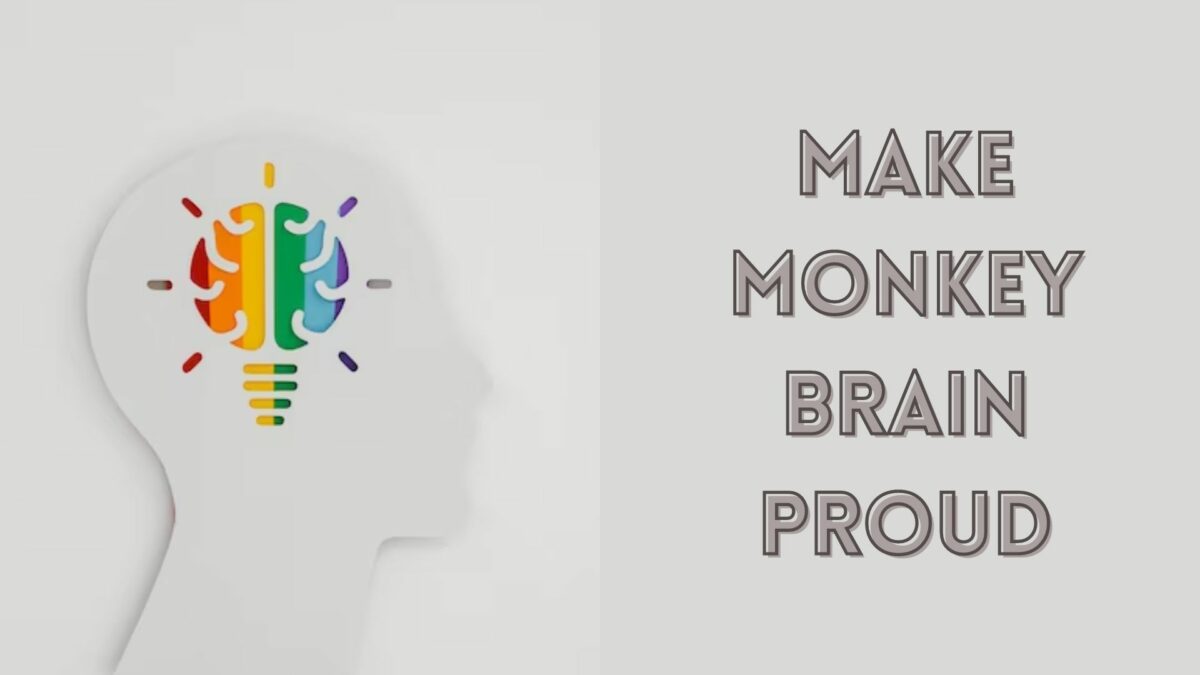“Don’t accept your dog’s admiration as conclusive evidence that you are wonderful.”
–Ann Landers
“I do not care so much what I am to others as I care what I am to myself.”
– Michel de Montaigne

If you watched Bugs Bunny when you were a kid like I did, you probably remember the cartoons where Bugs is faced with the opportunity to do something particularly naughty, like whack the dog with a hammer.
As he was pondering the choice, he’d often say
If I dood it, I get a whippin’
I dood it!
We often go through the same considerations when facing temptation. Whether it’s deciding on getting the dessert or if we should purchase the 183” flat screen TV for the man cave, we debate, dither, and think about how ashamed we’ll feel if we give in to the temptation.
It’s the wrong way to approach the mental debate.
As we’ll see in this article, there is a better way to gird yourself against temptation and to fight the ego depletion that we suffer when we have to say “no” too many times during a day.
Shame Doesn’t Make Monkey Brain Cower in the Corner
There are a couple of ways that you can think about resisting temptation.
- Shame. Eat that cookie, and you’re going to feel miserable the moment you stop chewing, as all of those calories go straight to your big toe.
- Pride. Don’t eat that cookie, and gloat at how wonderful, disciplined, and strong you are as you admire that toned bod in the mirror.
The University of Houston’s Dr. Vanessa Patrick and her team studied which of those two approaches to fighting temptation was more successful in actually helping you to not give in to Monkey Brain screaming that he wants whatever it is that is put in front of you.
For those of you who are new here, Monkey Brain is what I call your limbic system in your brain. To read more about Monkey Brain, learn why he impacts your life, and to receive a free e-book about how to fight him, you can click here.
Based on how Monkey Brain evolved, he wants to feel good about himself. He wants to feel like he’s the biggest, strongest, best-looking Monkey Brain around.
How can you do that?
Stroke his ego.
But, first, let’s look at why beating him up doesn’t work.
Patrick and her team set up an experiment where people had a piece of cake put in front of them. They were instructed to think either about how ashamed they’d be of eating the cake, to not think of anything at all, or to think about how proud they’d be for resisting the cake. They then sat in front of the cake and were told they could choose to eat it or not to eat it.
How did they do?
Thinking of shame actually increased the likelihood that people ate cake, and while it slightly moderated the amount of cake eaten, it only reduced the total cake eaten by about 5.9% and exposed more people to the sugar bombs than had they thought about nothing at all.
There’s a simple reason for this, backed up by scientific study.
When you threaten Monkey Brain with shame, that’s the same as punishment in his book. He figures that he’s going to get punished anyway, so he may as well have fun in the bargain, so he fights harder for what he perceives as the good stuff—the new Jimmy Choo shoes, dessert, the kickin’ man cave, etc.
As Drs. Charles Carver and Terri White of UCLA showed, we are much more motivated by rewards than we are by punishment.
Being able to feel proud about a decision is a reward in Monkey Brain’s book. He wants to think that he’s good enough, he’s smart enough, and gosh darn it, people like him. That’s why he is motivated by pride, and as the research from Patrick and her team show, it is a powerful motivator, enough to decrease the amount of cake consumed by 70.5%.
Furthermore, their research shows that thinking of that proud moment after you’ve said “no, thank you” strengthens your reserves against ego depletion. You feel good about yourself and you have the boost you need to keep resisting temptation.
Two for the price of one!
So, next time you’re faced with temptation, think about how proud of yourself you’ll be when you can walk away from it.
Aren’t you proud of yourself that you read this article?
Author Profile
- John Davis is a nationally recognized expert on credit reporting, credit scoring, and identity theft. He has written four books about his expertise in the field and has been featured extensively in numerous media outlets such as The Wall Street Journal, The Washington Post, CNN, CBS News, CNBC, Fox Business, and many more. With over 20 years of experience helping consumers understand their credit and identity protection rights, John is passionate about empowering people to take control of their finances. He works with financial institutions to develop consumer-friendly policies that promote financial literacy and responsible borrowing habits.
Latest entries
 Low Income GrantsSeptember 25, 2023How to Get a Free Government Phone: A Step-by-Step Guide
Low Income GrantsSeptember 25, 2023How to Get a Free Government Phone: A Step-by-Step Guide Low Income GrantsSeptember 25, 2023Dental Charities That Help With Dental Costs
Low Income GrantsSeptember 25, 2023Dental Charities That Help With Dental Costs Low Income GrantsSeptember 25, 2023Low-Cost Hearing Aids for Seniors: A Comprehensive Guide
Low Income GrantsSeptember 25, 2023Low-Cost Hearing Aids for Seniors: A Comprehensive Guide Low Income GrantsSeptember 25, 2023Second Chance Apartments that Accept Evictions: A Comprehensive Guide
Low Income GrantsSeptember 25, 2023Second Chance Apartments that Accept Evictions: A Comprehensive Guide

